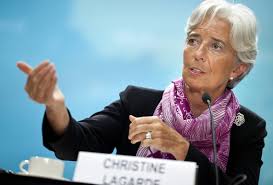…..United Arab Emirates, Saudi Arabia to introduce VAT in 2018
The International Monetary Fund (IMF) has published a new paper on the fiscal consolidation challenges being faced by the members of the Gulf Cooperation Council (GCC) – Kuwait, Qatar, Oman, Saudi Arabia, Bahrain, and the United Arab Emirates – whose tax revenues have been depressed due to persistently low oil prices.
Tax-News.com reports that the paper shows the GCC countries are making progress towards diversifying their revenue bases away from revenues from oil. Although a number of countries have committed to joint fiscal initiatives, such as the introduction of new sin taxes and a value-added tax, the degree of progress across countries in this area varies considerably, it says, with the non-oil revenue to be generated ranging from 1.7 to 6.6 percent of non-oil GDP by 2020.
Saudi Arabia and the United Arab Emirates have been significantly quicker in implementing the reforms that were proposed at GCC level.
The report notes that following ratification of the GCC excise agreement, Saudi Arabia introduced excises on tobacco and carbonated drinks and energy drinks in June 2017. The rate on tobacco and energy drinks is 100 percent, and the rate on carbonated drinks is 50 percent. In the UAE, the implementation of excises on tobacco (100 percent), energy drinks (50 percent), and carbonated drinks (50 percent) started in October.
It adds that the GCC VAT agreement has been ratified and Saudi Arabia and the United Arab Emirates intend to introduce VAT at the beginning of 2018. Countries are now working on finalizing domestic VAT laws and implementing regulations. The VAT will be introduced at a five percent rate, with some discretion provided to countries in determining exemptions and zero-rated items within the bounds set by the GCC agreement. The IMF said it will be important that exemptions are kept to a minimum and consideration should be given to raising the VAT rate once the tax is successfully introduced.
The report states: “The VAT could help generate additional revenue in the range of about 1.5-3 percentage points of non-oil GDP. Qatar is working on establishing a separate and independent tax authority, and has recruited experts to help with the design and implementation of the VAT. In Saudi Arabia, General Authority of Zakat and Taxes (GZAT) has been hiring and training additional staff and reaching out to businesses in preparation for the introduction of the VAT.”
Both Saudi Arabia and the United Arab Emirates will introduce VAT from next year, while the four other GCC states have yet to set out a timetable for introducing the levy.
The report notes other fiscal efforts underway in the territories. It says the Kuwaiti Government is preparing a business profit tax reform that will apply to all enterprises. In Saudi Arabia, fees for visas and government services have been introduced or increased, a tax is being applied to vacant lands, and fees on expatriate labor and expatriates’ dependents is being introduced or increased. Further, a tax of three percent on rents was introduced in 2016 in Abu Dhabi.
The reports shows further that the most significant fiscal challenges are faced in Bahrain, Oman, and Saudi Arabia, although it projects that Saudi Arabia will be able to return to a fiscal surplus more quickly, around 2022. Kuwait is the only territory with a positive fiscal balance.




